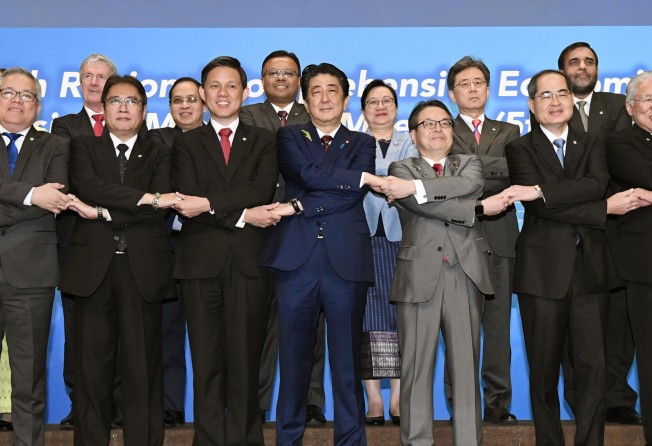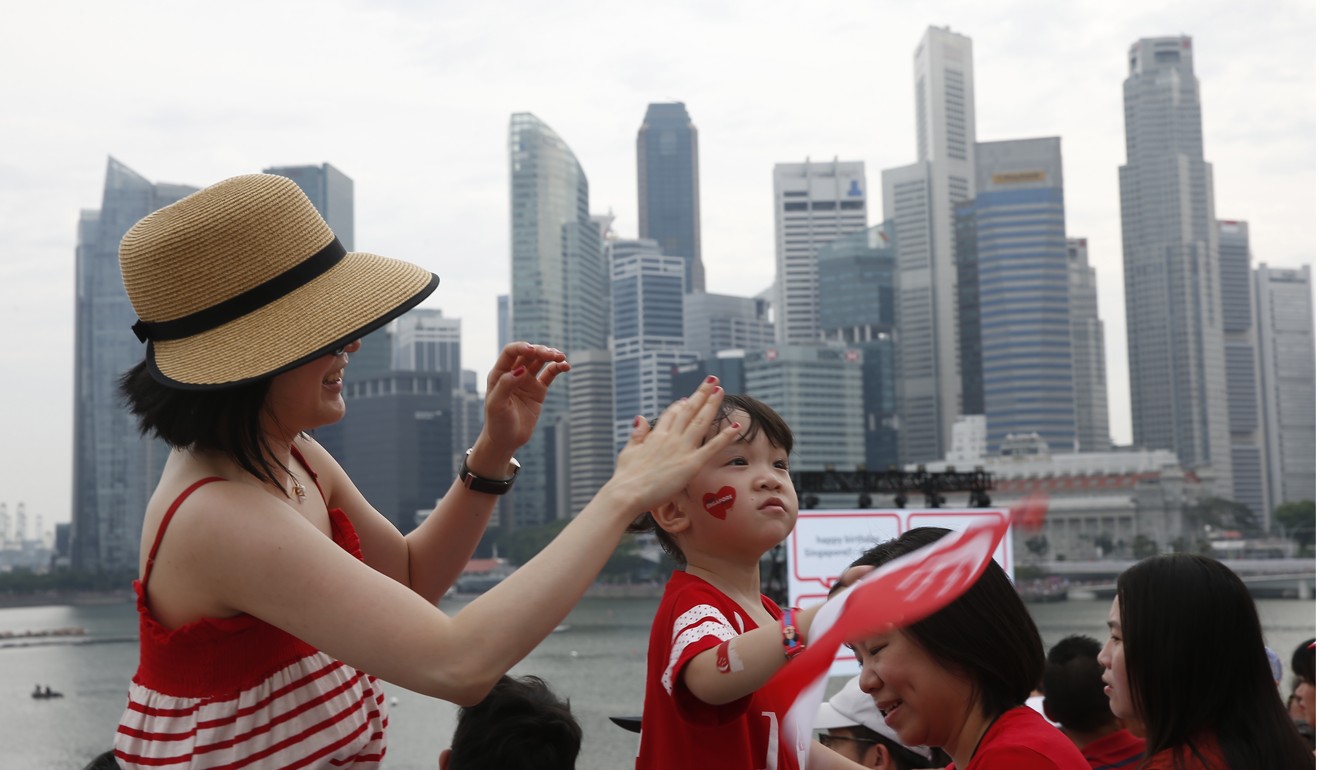How domestic politics threatens China’s dream of building Asia-Pacific free-trade bloc to offset US tensions
Domestic opposition in countries ranging from India to Australia could undermine efforts to reach a deal on the Regional Comprehensive Economic Partnership

A massive trade deal for the Asia-Pacific region designed to offset the impact of US protectionist policies could still be derailed by domestic political uncertainties in some of the key countries, regional trade and diplomatic observers have warned.
Key talks on establishing the China-dominated Regional Comprehensive Economic Partnership (RCEP) – poised to be the world’s largest economic bloc covering almost half of the global economy – are expected to be held in November in Singapore.
The United States has decided not to attend the summit, which may provide extra impetus for China and 15 other nations to agree the deal.
China is pushing hard for the deal in light of its current trade war with the US and the decision by US President Donald Trump to pull out of the Trans Pacific Partnership agreement.
But Kotaro Tamura, Asia fellow at the Milken Institute and a former senator and parliamentary secretary in charge of economic and fiscal policy in Japan’s Cabinet Office, said it was possible that the deal would fail as different countries’ conflicting agendas emerged during the negotiations.
The deal would involve the 10 members of the Association of Southeast Asian Nations plus China, India, Japan, South Korea, Australia and New Zealand, which means it would cover countries that have wildly different levels of economic development.
“Many emerging economies tend to protect their domestic industries,” Tamura said, arguing this could mean that any agreement would not meet the expectations of highly developed economies such as Japan.
The deal may face further complications if the key elements cannot be agreed upon in November as Australia, India and Indonesia all face important elections next year.
“Big elections are coming in countries like Australia, India and Indonesia and their populations tend to be reluctant about supporting globalism,” Tamura said.
“Therefore, if member countries cannot agree on basic issues within this year, the RCEP dream might not come true.”

Australia, which recently changed prime ministers and where the government is limping on without a parliamentary majority, will have to hold a federal election by May at the latest.
The county’s relations with China have become increasingly fraught in recent years amid growing concerns among politicians and members of the public about Beijing’s influence.
Ralph Cossa, the president of the Pacific Forum CSIS in Honolulu, said that China’s efforts to exert its influence in the Asia-Pacific region may be seen as a form of “bad governance” by Australians, who may also regard it as a threat to their national security.
India’s general election – due to be held in April or May – may also act as an obstacle to its participation in the RCEP due to widely held concerns about the country’s trade deficit with China.
Sampa Kundu, a university professor in India who specialises in southeast Asian affairs, said that India had some concerns about the partnership, especially with regards to the liberalisation of its services sector.
“India is worried that implementation of RCEP may increase its trade deficit with China,” she said.
“India’s trade deficit with China is already at a worrisome level for Indian industry, even without the free-trade deal.”
Yet analysts agree that while countries may have reservations about signing up to the China-led deal, it would help offset the impact of Trump’s protectionist trade policies.
According to a Korea Economic Research Institute report published this week, taking part in the RCEP would help stabilise the South Korean economy, which is one of the most exposed to the US-China trade war.
The study said that the country’s exports could fall by as much as 75 per cent due to the dispute, but joining RCEP would narrow this to 22 per cent.
The two countries account for over a third of South Korean exports, according to the Korea International Trade Association.
Its main export item, intermediate goods, are particularly vulnerable and retailers could see their operations in China suffering from any economic slowdown there.
Tamura also said RCEP may help insulate Japan from the impact of trade tensions, adding that the country was looking for “real allies on free trade” amid the spread of protectionist measures around the globe.
“Japan’s biggest concern is ongoing protectionism in global trade led by the US ” he said. “Japan carefully tries to put constructive pressure on the US to stop escalating its protectionist behaviour by working with China on building large-scale free trade schemes in Asia.”